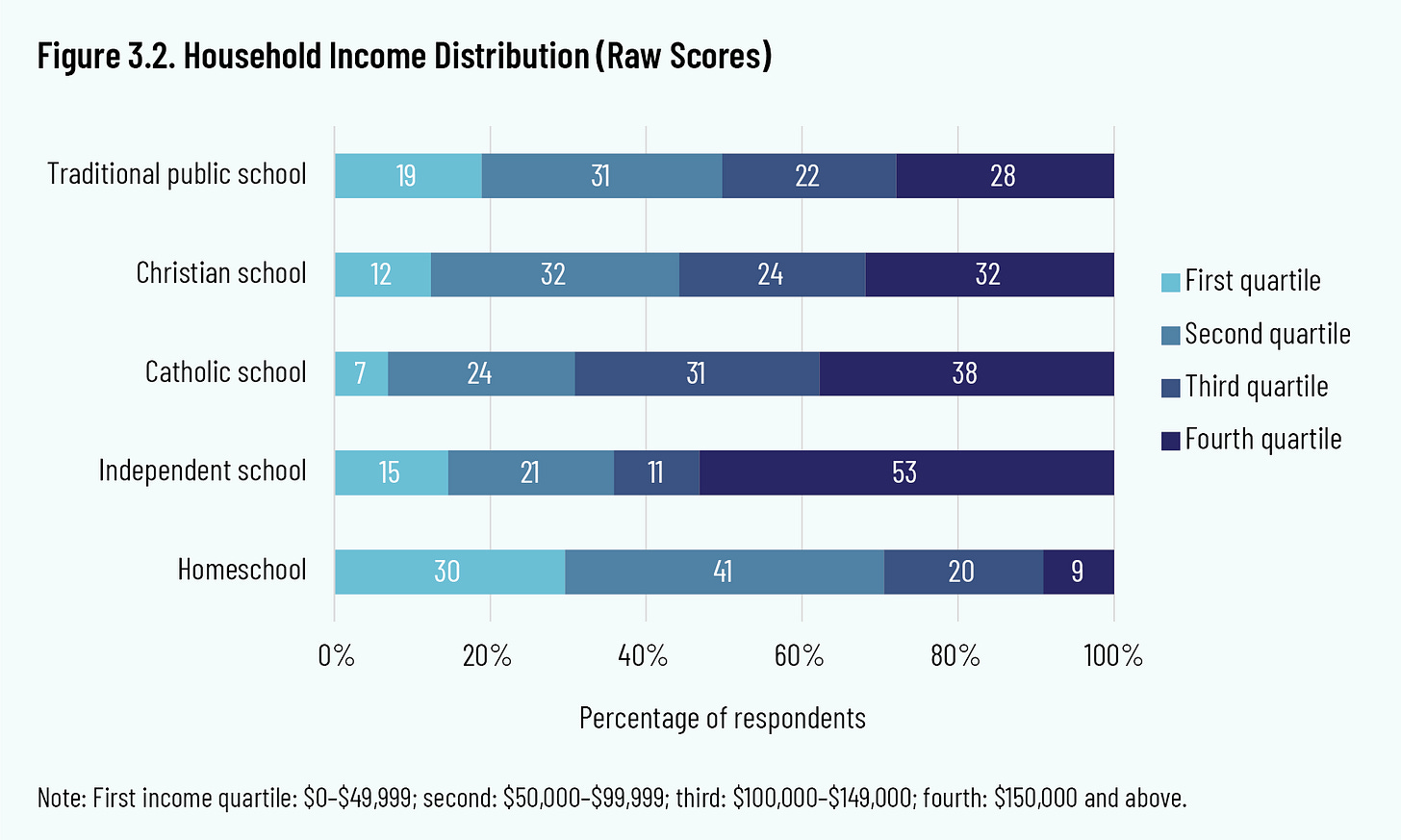Part 3 – Learning, Earning, and Serving: Long-Term Outcomes of Christian Education
How school type influences educational and professional outcomes—and where Christian schools can celebrate and look to improve.
This post is the third in a seven-part series unpacking the 2023 Cardus Education Survey. If you missed the earlier entries, you can find them below:
Series Overview: Exploring the 2023 Cardus Education Survey
Part 1 — Introduction to the Study: What Difference Does Christian Education Make?
Part 2 —What Students Remember: The Christian High School Experience
→ Part 3 — Learning, Earning, and Serving: Long-Term Outcomes of Christian Education (this post)
Part 4 — Civic Formation
Part 5 — Mental Health and Well-being
Part 6 — Faith and Family Formation
Part 7 — Reflections, Areas for Growth, and Next Steps
One of the long-standing questions in education—especially among parents deciding between public, private, or Christian schooling—is how school type affects long-term success. Of course, there is some subjectivity to what “success” may look like for specific students, however let’s explore some key questions: Will students graduate from college? Find meaningful employment? Be equipped to lead?
The 2023 Cardus Education Survey offers new insight. While academic and career metrics aren’t the final measure of a life well-lived, they are part of what it means to steward our gifts for God’s glory and the good of others.
Here’s what the data shows about Christian school graduates—and what we can learn from other sectors as well.
Educational attainment: Strong—but not always the highest
Christian (Protestant) school graduates do well in postsecondary education. In Figure 3.1, which measures the highest level of education completed, Protestant grads exceed public school peers in bachelor’s and graduate degrees. However, nonreligious independent and Catholic school graduates lead the pack in this category.
This outcome isn’t surprising given the broader academic emphasis and institutional selectivity often found in those sectors. But the takeaway is still positive: Christian schools are sending students to college—and they’re finishing.
It’s also worth noting that Christian graduates are often drawn toward purposeful vocations—education, ministry, counseling, social work. These roles don’t always require advanced degrees, and may play a part in the discrepancies between school categories.
Income and employment: Steady and purposeful
In Figure 3.2, the survey compares income ranges across sectors. Nonreligious independent and Catholic school grads report the highest average incomes. Protestant school graduates land in the mid-range—above homeschool grads and closely aligned with public school grads.
While income isn’t the only (or best) measure of success, Figure 3.3 offers another helpful metric: full-time employment. Protestant school graduates are more likely to report full-time employment and less likely to be unemployed than their public school peers, even at similar levels of education.
Purpose over prestige?
One of the most encouraging implications of this section of the CES is the emphasis on purpose. While Protestant school graduates may not always top the charts in income or degrees earned, they are consistently drawn to professions that emphasize service, people, and meaning.
In short: they’re contributing. They’re building communities, not just careers.
This is reflected in Figure 3.6, where Protestant and Catholic school graduates are significantly more likely than their peers to say that helping others directly through their work is “very important.”
In contrast, Figure 3.5 shows that Protestant school grads are among the least likely to say that making a lot of money is a personal priority.
That may not show up in a salary band—but it echoes the deeper goals of Christian education: forming citizens of the Kingdom of God who exhibit wisdom and love for neighbor.
Final thoughts: Equipping students for both life and calling
Educational attainment and employment outcomes are meaningful measures. They show us whether schools are preparing students for real-world challenges—and Christian schools are holding their ground.
Are there areas for growth? Certainly. Protestant schools can look to Catholic and nonreligious independent peers to learn from strategies that promote college completion and career access. But the data also shows a clear strength: Christian education is not just forming belief—it’s also forming character and a desire to serve others.
Up next: Part 4 — Civic Formation






